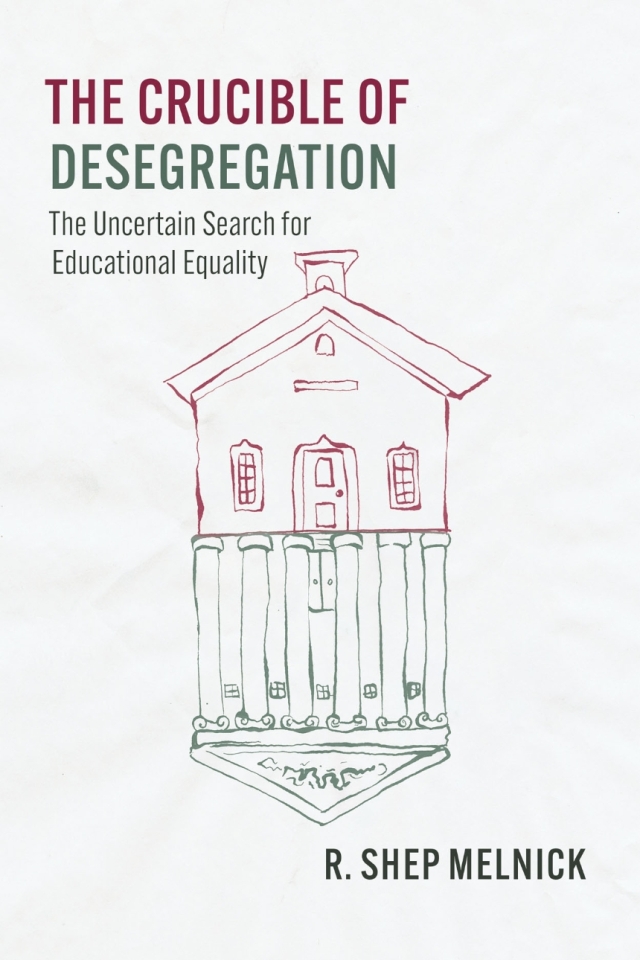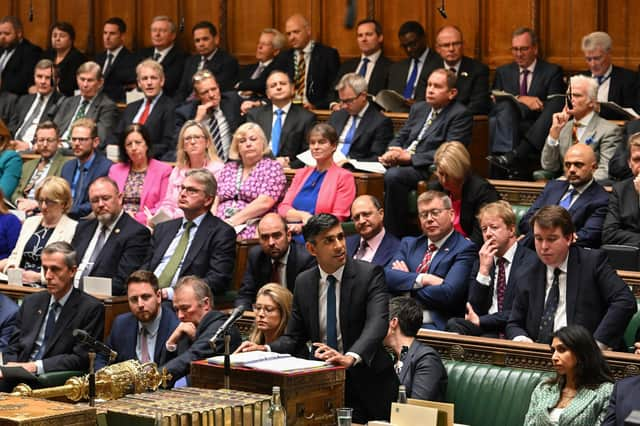The Impact Of The Justice Department's School Desegregation Order Rescission

Table of Contents
Historical Context of School Desegregation and the Role of the Justice Department
The history of school desegregation in the United States is a complex and often contentious one. The landmark Supreme Court case, Brown v. Board of Education (1954), declared state laws establishing separate public schools for black and white students to be unconstitutional. This ruling, however, was far from the end of the struggle; the implementation of Brown faced significant resistance across the nation.
The Justice Department played a crucial role in enforcing desegregation orders following Brown. Through legal actions, investigations, and the deployment of resources, the department worked to dismantle segregation in schools. While significant progress was made, particularly in the South, challenges persisted, including: massive resistance from some communities, slow implementation of integration plans, and the enduring legacy of residential segregation which often perpetuated school segregation.
- Key legislation impacting school desegregation: The Civil Rights Act of 1964, the Elementary and Secondary Education Act of 1965, and the Voting Rights Act of 1965 all played vital roles.
- Examples of successful desegregation initiatives: Court-ordered busing in some districts proved effective in achieving racial balance in schools, although this was often highly controversial.
- Challenges faced in enforcing desegregation: Resistance from school districts, lack of resources in underfunded schools, and the complex issue of de facto segregation (segregation resulting from housing patterns) presented major obstacles.
The Justice Department's Decision to Rescind School Desegregation Orders: Rationale and Controversy
The Justice Department's decision to rescind school desegregation orders has been met with widespread criticism and legal challenges. The stated rationale often centers on claims that these orders are no longer necessary or effective, that they constitute an overreach of federal authority, and that they can be detrimental to other educational goals.
However, this decision is highly controversial. Critics argue that the rescission undermines decades of progress towards racial equality in education and ignores the persistent realities of de facto segregation and systemic inequities. The legal arguments against the rescission center on the ongoing need to address segregation and ensure equal educational opportunities for all students, regardless of race.
- Key arguments in favor of the rescission: Focus on local control of schools, claims of outdated desegregation plans, and assertions that the orders hinder other educational priorities.
- Key arguments against the rescission: Emphasis on the continued existence of racial disparities in education, the need for federal oversight to ensure equal opportunities, and the potential for increased segregation.
- Reactions from various stakeholders: Civil rights organizations have strongly condemned the decision, while some conservative groups have praised it. Educational institutions and political figures are largely divided along partisan lines.
Potential Impacts on School Demographics and Educational Equity
The rescission of school desegregation orders carries significant risks for school demographics and educational equity. The most immediate concern is the potential for increased racial segregation in schools, reversing decades of progress toward integration. This re-segregation could exacerbate existing achievement gaps and limit opportunities for minority students.
- Potential for re-segregation in specific school districts: Districts with a history of segregation, particularly in the South, are most vulnerable to experiencing a resurgence of racially isolated schools.
- Impact on access to quality education for minority students: Segregated schools often lack resources and experienced teachers, contributing to lower academic achievement for minority students.
- Potential exacerbation of existing achievement gaps: Racial segregation in schools has consistently been linked to widening achievement gaps in standardized test scores and graduation rates.
Long-Term Consequences and Future Directions
The long-term consequences of this School Desegregation Order Rescission are potentially severe. The rescission could significantly hinder efforts to achieve racial equality in education, setting back progress made over several decades. The potential responses from other branches of government, civil rights groups, and the public will shape the future of school desegregation efforts. Legal challenges are likely, and legislative action may be necessary to counteract the impact of the rescission.
- Potential legislative responses to counteract the rescission: New legislation could be introduced to strengthen federal oversight of school desegregation or to provide additional resources to schools in underprivileged communities.
- Role of civil rights organizations in advocating for desegregation: Civil rights groups will play a vital role in challenging the rescission through legal action, advocacy, and public education.
- Likelihood of future legal battles concerning school desegregation: The rescission is almost certain to be the subject of significant legal challenges in the years to come.
Conclusion
The Justice Department's rescission of school desegregation orders represents a significant threat to the ongoing pursuit of racial equality in American education. The potential for increased segregation, exacerbated achievement gaps, and diminished opportunities for minority students necessitates a robust response. The long-term consequences are uncertain, but the potential for negative impacts is substantial. We must remain vigilant and engaged in the fight for educational equity. Stay informed about developments related to the School Desegregation Order Rescission and contact your representatives to advocate for policies that ensure equal educational opportunities for all students. The fight for desegregated schools and true racial justice in education continues, and your voice matters.

Featured Posts
-
 Check Daily Lotto Results For Wednesday 16th April 2025
May 03, 2025
Check Daily Lotto Results For Wednesday 16th April 2025
May 03, 2025 -
 The Boris Johnson Factor A Potential Tory Saviour
May 03, 2025
The Boris Johnson Factor A Potential Tory Saviour
May 03, 2025 -
 Local Elections 2024 Assessing The Reform Partys Impact Under Farage
May 03, 2025
Local Elections 2024 Assessing The Reform Partys Impact Under Farage
May 03, 2025 -
 The Future Of Rail Reducing Carbon Emissions With Wind Powered Trains
May 03, 2025
The Future Of Rail Reducing Carbon Emissions With Wind Powered Trains
May 03, 2025 -
 A Place In The Sun Making Your Overseas Property Dreams A Reality
May 03, 2025
A Place In The Sun Making Your Overseas Property Dreams A Reality
May 03, 2025
Latest Posts
-
 Investment In Belgian Energy A 270 M Wh Bess Financing Case Study
May 04, 2025
Investment In Belgian Energy A 270 M Wh Bess Financing Case Study
May 04, 2025 -
 Belgiums Energy Market Financing Options For A 270 M Wh Bess
May 04, 2025
Belgiums Energy Market Financing Options For A 270 M Wh Bess
May 04, 2025 -
 Challenges And Solutions Financing A 270 M Wh Bess In Belgium
May 04, 2025
Challenges And Solutions Financing A 270 M Wh Bess In Belgium
May 04, 2025 -
 Securing Funding For A 270 M Wh Bess Project In The Belgian Merchant Market
May 04, 2025
Securing Funding For A 270 M Wh Bess Project In The Belgian Merchant Market
May 04, 2025 -
 270 M Wh Battery Energy Storage System Bess Financing In Belgium
May 04, 2025
270 M Wh Battery Energy Storage System Bess Financing In Belgium
May 04, 2025
